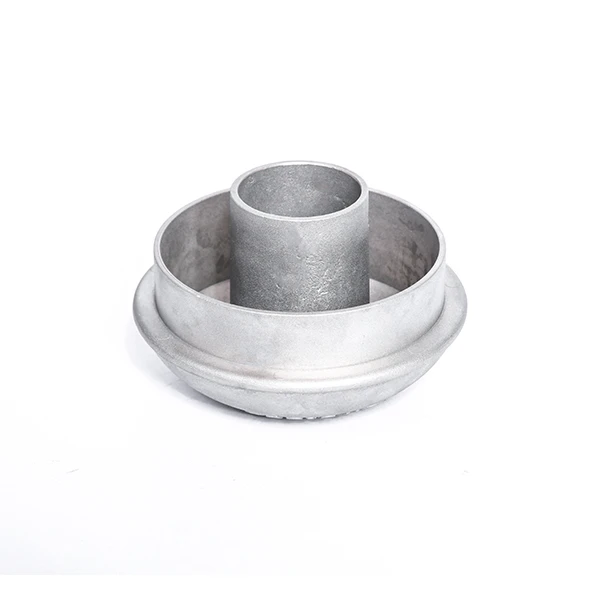Mobile:+86-311-808-126-83
Email:info@ydcastings.com
cf3m steel
Understanding CF3M Steel Properties, Applications, and Advantages
CF3M steel, a type of stainless steel, is known for its exceptional resistance to corrosion and high strength, which makes it an ideal material for various industrial applications. It is a cast austenitic stainless steel, primarily composed of iron, chromium, nickel, and molybdenum. This alloyed composition provides CF3M steel with unique properties that distinguish it from other materials, making it a popular choice in many fields such as chemical processing, oil and gas, nuclear power, and marine environments.
Composition and Properties
The elemental makeup of CF3M steel typically includes approximately 17% chromium, 12% nickel, and 2% molybdenum. The addition of molybdenum enhances the steel's resistance to pitting and crevice corrosion, which is particularly beneficial in harsh environments that involve chlorides. The high chromium content contributes to the formation of a passive oxide layer on the surface of the steel, further improving its overall corrosion resistance.
One of the defining characteristics of CF3M steel is its austenitic structure, which provides excellent mechanical properties, including high ductility and toughness. This structure allows for significant deformation without fracture, making the steel suitable for a variety of fabrication processes. Furthermore, CF3M steel maintains its strength at elevated temperatures, making it suitable for applications involving heat.
In addition to its superior mechanical properties, CF3M steel exhibits excellent weldability. The material can be easily welded using most commonly used welding techniques, which is crucial in construction and manufacturing processes. After welding, the steel retains its corrosion resistance, thanks to the homogenous distribution of alloying elements.
Applications
CF3M steel’s versatility leads to its application in numerous industries. One of the most significant uses of CF3M steel is in the chemical processing industry, where it is commonly employed for manufacturing reaction vessels, heat exchangers, and piping systems. Its resilience against corrosive media, including strong acids and alkaline solutions, makes it a reliable choice for handling aggressive chemicals.
In the oil and gas sector, CF3M steel is extensively used in valves, pumps, and pipelines where resistance to sour gas and saline environments is paramount
. The material’s ability to withstand extreme conditions helps prevent failures that could result in environmental hazards and costly downtime.cf3m steel

The nuclear power industry also benefits from CF3M steel due to its ability to perform under high radiation and thermal conditions. Components made from this material are utilized in reactors and containment structures, ensuring the safety and reliability of nuclear operations.
In marine applications, CF3M steel’s resistance to seawater corrosion makes it suitable for the construction of ships, offshore platforms, and other equipment exposed to harsh marine environments. Its durability helps extend the lifespan of components, reducing maintenance costs and downtime.
Advantages of CF3M Steel
The primary advantage of CF3M steel lies in its excellent corrosion resistance, which minimizes the risk of material failure in aggressive environments. This property leads to longer service life and reduced maintenance needs, providing cost savings over time.
Moreover, its mechanical properties allow for easy fabrication, reducing the complexity and time associated with manufacturing processes. The ability to maintain performance under various environmental conditions also enhances safety, particularly in critical applications such as nuclear and chemical industries.
Furthermore, CF3M steel’s adaptability to stress and temperature variations makes it suitable for a wide range of applications, proving its worth in both traditional and innovative industries.
Conclusion
In conclusion, CF3M steel is an exemplary material that features remarkable properties such as outstanding corrosion resistance, high strength, and excellent weldability. These features make it a preferred choice across diverse industries, including chemical processing, oil and gas, nuclear power, and maritime applications. As industries continue to evolve and face new challenges, the importance of materials like CF3M steel, which demonstrably perform under harsh and demanding conditions, cannot be overstated.
-
Why Should You Invest in Superior Pump Castings for Your Equipment?NewsJun.09,2025
-
Unlock Performance Potential with Stainless Impellers and Aluminum End CapsNewsJun.09,2025
-
Revolutionize Your Machinery with Superior Cast Iron and Aluminum ComponentsNewsJun.09,2025
-
Revolutionize Fluid Dynamics with Premium Pump ComponentsNewsJun.09,2025
-
Optimizing Industrial Systems with Essential Valve ComponentsNewsJun.09,2025
-
Elevate Grid Efficiency with High-Precision Power CastingsNewsJun.09,2025











